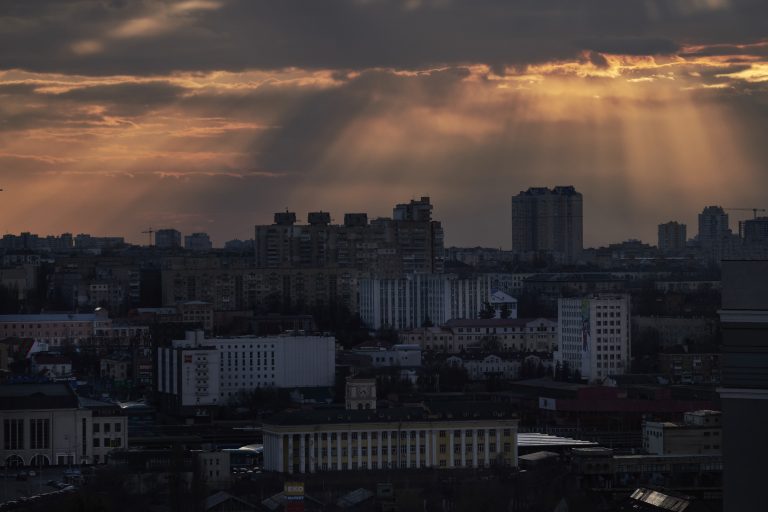Following Vladimir Putin’s invasion of Ukraine, nation’s across the globe unleashed a barrage of sanctions aimed at crippling Russia’s invasion effort and economy.
The United States has joined its European allies in dramatically escalating financial penalties after initial sanctions did little to deter Putin’s plans for Ukraine.
New measures, targeting the heart of Russia’s financial system, its Central Bank, were introduced at the end of February including removing an unspecified number of Russian banks from the Society for Worldwide Interbank Financial Telecommunication (SWIFT).
SWIFT is the global financial network that allows rapid transfer of money across borders. It was established in 1973 and is based in Belgium. The network connects some 11,000 banks and other financial institutions in more than 200 countries and jurisdictions. The network is jointly owned by more than 2,000 banks and financial institutions.
The network helps make secure international trade possible and is not supposed to take sides in disputes, however Iran was banned from the network in 2012 in response to the country’s nuclear program.
Success
You are now signed up for our newsletter
Success
Check your email to complete sign up
At present it is unknown just how many banks in Russia are impacted by the move however a statement from the European Union, the U.S. and the UK said the move will “ensure that these banks are disconnected from the international financial system, and harm their ability to operate globally.”
It’s expected that payments for Russia’s valuable energy and agricultural products will be severely disrupted and will force banks to deal directly with one another, adding delays and extra costs to regular business activity while cutting off revenues for the Putin regime.
Anticipating the move, Putin implemented a National Payment Card System, dubbed “Mir”, to process card payments; however, few foriegn countries are currently using it.
A mountain of sanctions
Prior to implementing targeted SWIFT restrictions the United Kingdom took aim at specific individuals in the Putin regime including Putin himself and several of his peers.
“Since Tuesday [the UK] has imposed sanctions freezing the assets and imposing a travel ban on 10 named individuals and 11 businesses, including six banks. Hundreds more individuals sitting on Russia’s Duma will also face sanctions. Individuals will be banned from all UK transactions. Relatives will not, however, be sanctioned personally,” The Guardian reported.
Russia’s foreign minister, Sergei Lavrov has been sanctioned in addition to Kirill Shamalov, Russia’s youngest billionaire and Putin’s former son-in-law. Petr Fradkov, chair and chief executive of Promsvyazbank and Denis Bortnikov, deputy president of VTB Bank have also been sanctioned.
Individuals involved with the manufacturing of weapons have been targeted including Yuri Slyusar, head of United Aircraft Corporation and Elena Georgieva chair of Novikombank, a subsidiary of the major Russian state-backed defence business Rostec.
Banks specifically targeted include VTB, Rossiya, IS, GenBank, Promsvyazbank and The Black Sea Bank.
Companies targeted include JSC Research, a state-owned company that controls all of Russia’s major aircraft manufacturing companies and is a major supplier of aircraft to Russia’s military.
Also targeted is the United Shipbuilding Corporation, the largest shipbuilder in Russia that repairs, maintains and builds ships for Russia’s military.
Russia’s Tactical Missiles Corporation, Russia’s most prominent manufacturer of missiles that specializes in aircraft and naval armaments has also been targeted.
Numerous countries including the U.S. and Canada have also implemented sanctions targeting Russian financial institutions and industry as well as individuals deemed instrumental in Russia’s aggression.
Airspace bans
In addition to attempting to cripple Russia’s financial sector numerous countries have implemented an airspace ban on Russian aircraft.
Upwards of 30 countries have closed their airspace off to Russian aircraft including Canada, and much of the European Union.
On Feb. 25 Britain announced an immediate ban on all Russian private jets from UK airspace and the Czech Republic, Poland and Bulgaria quickly followed suit.
On Feb. 26, Estonia, Latvia, Lithuania, Slovenia and Romania also banned all Russian aircraft from their airspace.
“There is no place for planes of the aggressor state in democratic skies,” Estonian Prime Minister Kaja Kallas tweeted.
On Sunday both Austria and Germany introduced its own airspace ban saying that Russian flights will no longer be able to use Austrian airspace or land at Austrian airports.
“We are doing everything to show Vladimir Putin that we do not accept his invasion of Ukraine,” Chancellor Karl Nehammer tweeted.
The airspace bans on Russian aircraft have spread to France and Belgium as well as the Nordic states of Sweden, Denmark, Norway and Iceland.
Finland, which shares a 1,300-kilometre (800-mile) border with Russia is in the process of closing airspace to Russian air traffic, according to a tweet by Finland’s Transport Minister, Timo Harakka.
Russia has retaliated to the bans by closing its airspace to flights from Estonia, Latvia, Lithuania, Slovenia, Bulgaria, Poland and the Czech Republic and on Feb. 25 Russia closed its airspace to all UK-linked aircraft.


















